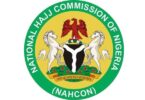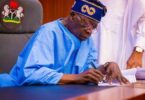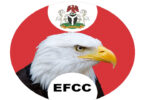Godwin Emiefele, Governor of the Central Bank of Nigeria (CBN) has blamed corruption in the system as the key factor, fuelling the high exchange rate and scarcity of foreign exchange in the country. He fingered the Organised Private Sector (OPS) for the crisis, bedeviling the foreign exchange market.
Emefiele said that the OPS obtains foreign exchange from the CBN but fails to bring it back to the country, adding that through this channel, billions of dollars are exported outside the country and that this accounts for the current scarcity of foreign exchange and the falling value of the naira.
This is even as the Association of Bureaux de Change Operators of Nigeria has accused the CBN of being responsible for the falling value of the naira. This follows the crash of the national currency to an all-time low of N718 to one United States dollar last week.
Emiefele spoke at the First National Stakeholders Conference with the theme: “Promoting synergy between the banking industry and the Organised Private Sector (OPS)’, organised by the Association of Corporate Affairs Managers of Banks (ACAMB).
The CBN governor, who was represented by Ebuak Ezule, Deputy Director, Banking Supervision Department, accused the OPS of not addressing the exportation of dollars outside the country.
He said the CBN had done a lot in interventions but its effort had not been visible, owing to what he called structural problems, which have not been addressed, faulting the National Assembly and the Presidency for not holding some government financial agencies accountable for the huge sums of money allocated to them.
He lamented: “The funding that has been allocated to them, to who are they accountable? The National Assembly is there. The Presidency is there. The Federal Ministry of Finance is there. Have they asked these agencies to account for the funds allocated to them? We are not accountable in this country.”
The CBN governor challenged the OPS to provide evidence that less than one per cent of their members received intervention funds and called on Nigerians to be patriotic and accountable for responsibilities assigned to them, adding that people borrow money and don’t pay it back.
“People borrow with the intention not to pay back. If people pay back, we won’t be having problems. But people are not paying back, that is why there is a problem,” he lamented.
President of the Manufacturers Association of Nigeria (MAN), who was represented at the occasion by the Director, Corporate Services, Ambrose Oruche, noted that the banking and the manufacturing sectors are critical to the economy. He said the two shared mutual interdependency, which is helpful for economic growth.
The industry, he said, needed the banking sector to improve investments and production, while the banks need the funds and returns from the industry to maintain financial stability, stressing that if the industry is periled, the banking industry would be affected adversely.
Most times, he said, the industry is declaring losses while the banking sector is declaring huge profits. The industry-banking relationship has no steam underlined by the quantum of loans extended to the productive sector for years.
For instance, he said, the report from the CBN, shows the share of a commercial loan to the manufacturing sector to the aggregate loan to the economy averaged 0.1 per cent from 2017 to 2021. This, he noted, no doubt limits manufacturing activities in terms of investments and production.
Oruche stated that short-term and medium-term loans by banks are hindering the manufacturing sector and called on the banking sector to give the manufacturing sector long-term loans, create easy access to forex, create a single-digit interest rate, make available funds for capital expenditure and also create an avenue for partnership with the manufacturing sector.
President of the Chartered Institute of Bankers of Nigeria (CIBN), Dr. Ken Okpara noted that the banking sector is the engine room of any nation’s economic advancement and no doubt is a major segment of the Nigerian economy.
An efficient financial system, Okpara said, was one of the foundations for building sustainable economic growth and a virile economic system, stressing that the banking sector plays a pivotal role in facilitating the economic activity of the individual, private sector, public corporate bodies with the end role of promoting economic growth and ensuring financial stability.
He added that a well-functioning financial system and a vigorous private sector are important drivers of growth.
However, economy watchers are worried over the low value of the national currency against some other international currencies, blaming it on the inability of the Central Bank of Nigeria (CBN) to formulate policies that would alleviate the situation. They warned that if not adequately handled, the Naira may crash to N1000 to US$1 by the end of the year.
CBN had two weeks ago in two separate statements absolved itself of any blame for the falling Naira value, instead pointing accusing fingers at the Nigerian National Petroleum Company Limited and the speculative activities of foreign exchange traders.
The CBN in a statement titled; “The forex question in Nigeria: Fact sheet,” said the non-remittance of foreign exchange by the NNPC and speculative activities of foreign exchange traders are the problems bedeviling the Naira.
According to the CBN, there has been zero dollar remittance to the country’s foreign reserve by the NNPC, noting that as a corporate body, it does not print dollars.
The apex bank said monetary policy alone cannot bear all the burden of the expected adjustments needed to manage the present difficulties, and noted that it was the collective duty of all Nigerians to shore up the value of the naira.
According to the bank, Nigeria earns foreign exchange from four sources, namely, proceeds from oil exports; proceeds from non-oil exports; Diaspora remittances, and Foreign Direct/Portfolio investments, that is, capital flows.
The CBN lamented that Nigeria’s heavy dependence on oil exports for foreign exchange earnings and government revenue, the impact of the oil market crash, has severely affected the government’s naira revenue and other macroeconomic aggregates including economic growth, noting the rate of exchange between the Naira and other currencies has widened over the past few years.
The bank said; “There is un-abating demand for foreign exchange for both goods and services, thereby creating a demanding challenge. The current exchange rate of the Naira, like other major currencies, is not driven by cryptocurrencies, given the volatility in the cryptocurrency space, which lost over two trillion in the past two years in face of high inflation.”
While giving further reasons for the low value of the Naira, CBN said the United States dollar is gaining against all major currencies of the world, and noted that the crisis in Nigeria’s tertiary education sector has triggered an exodus of students from Nigerian schools, with its attendant payment of fees in foreign exchange, adding that summer travels by Nigerians have also impacted on the demand side of the foreign exchange market.
According to the apex bank, Nigeria is not producing hence the propensity to import is directly affecting the value of the Naira, saying the bank has attempted to address the challenge through policies.
It listed policies like the RT200 FX Programme 100 for 100 Policy on Production and Productivity, Naira4Dollar Scheme, Anchor Borrowers’ Programme (ABP), Export Development Facility (ED); and the Non-Oil Export Stimulation Facility (NESF).
The bank said that all these and many of its other initiatives were aimed at diversifying the economy, stimulating production, enhancing the inflow of foreign exchange, maintaining the stability of the naira against other currencies, and reducing foreign exchange demand pressure.
It, however, warned Nigerians against getting involved in the speculative activities of some players in the foreign exchange market.
Osita Nwanisobi, Director, Corporate Communications at the CBN, also in a statement, said the bank remained committed to resolving the foreign exchange issues confronting the nation and as such has been working to manage both the demand and supply side challenges.
While admitting that there was huge demand pressure for foreign exchange to meet the needs of manufacturers as well as those for the payment of tuition fees, medical fees, and other invisibles, Nwanisobi said the bank was concerned about the international value of the naira, adding that the monetary authority was strategizing to help Nigeria earn more stable and sustainable inflows of foreign exchange in the face of dwindling inflows from the oil sector.
He noted that recent initiatives undertaken by the bank such as the RT200 FX Programme and the Naira4Dollar rebate scheme had helped to increase foreign exchange inflow to the country.
According to him, the bank’s records showed that foreign exchange inflow through the RT200 FX Programme in the first and second quarters of 2022 increased significantly to about US$600 million as of June 2022.
Similarly, he disclosed that the Naira4Dollar incentive also increased the volume of Diaspora remittances during the first half of the year, noting that interventions such as the 100 for 100 Policy on Production and Productivity, Anchor Borrowers’ Programme (ABP), and the Non-Oil Export Stimulation Facility (NESF), among others, were also geared towards diversifying the economy, enhancing the inflow of foreign exchange, Stimulating production and reducing foreign exchange demand pressure.
Nwanisobi said that the bank would continue to make deliberate efforts in the foreign exchange sector to avert a further downward slide in the value of the naira, which he observed is fuelled by speculative tendencies.
He urged Nigerians to play their role by adjusting their consumption patterns, looking inwards, and finding innovative solutions to the country’s challenges, submitting that monetary policy alone could not bear all the burden of the expected adjustments needed to manage the challenges around Nigeria’s foreign exchange. He insisted that it was the collective responsibility of Nigerians to shore up the value of the Naira.
But the Association of Bureaux De Change Operators of Nigeria (ABCON) blamed the CBN on the free fall of the naira, saying it had laid out plans to save the naira from further decline and enhance exchange rate stability.
The ABCON National Executive Council said the move to save the naira was agreed on by the body at the conclusion of its meeting in Lagos recently where it unveiled strategies to save the local currency, bridge the exchange rate gaps and curb volatility in the market.
ABCON President, Aminu Gwadabe, listed the steps taken by the association that would save the local currency and economy from the impact of election spending.
He said the depreciation of the naira against global currencies was due to pressure from rising dollar demand without sufficient liquidity to meet the demands from retail end users, manufacturers, and other key players in the economy.
“The naira has consistently come under serious pressure due to dollar scarcity making it difficult for foreign exchange end users, manufacturers, and key industry players to access the dollar needed to meet their needs. ABCON under my leadership will continue to encourage our members to play the vital role of closing the exchange rate gaps in the market and reducing widening premium between the parallel market and the official window,” he lamented.











Leave a Comment